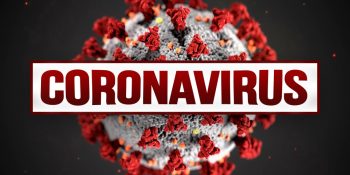Driver license online renewal available to some vulnerable populations
On Tuesday, March 10, 2020, Gov. Jared Polis announced an emergency order to help Coloradans reduce the potential spread of COVID-19. Starting on March 11, 2020, the Division of Motor Vehicles (DMV) will allow residents 65 years old and older to renew their driver license credential online. Under normal circumstances, drivers 65 and older are required to visit an office to renew their credential.
The programming will remain in place until such time as the emergency order is lifted. There are a small number of customers who may have additional restrictions because they have renewed online twice before. We will work with these customers on an individual basis to renew their credential without visiting an office.
In implementing this change, the Department of Revenue (DOR) is proactively working to protect Coloradans and do its part to help prevent the spread of the virus. “We are working with our customers and employees to address concerns about the virus,” said Lu Cordova, Executive Director, DOR. Mike Dixon, Senior Director, DMV., added, “We also implemented a more thorough process for cleaning our facilities and equipment to further decrease any potential exposure to the virus.”
All Coloradans are encouraged to take advantage of the DMV’s 35 online services before visiting a DMV office. Go to mydmv.colorado.gov where you will find, in addition to driver license renewals, many of the most popular services, such as:
- Request a driver record
- Pay a citation
- Pay a reinstatement fee
- Upload reinstatement documents
- Schedule an appointment
- Change license or vehicle address
- Update emergency contacts
- Check eligibility to renew by mail
- Reschedule a hearing
- Request title status
- Request duplicate title
- Apply for emissions waiver
- First-time registration
- Renew registration
- First-time disability placards
- Manage placards
- Replace tabs
- Registration fee estimator
In keeping with recommendations from the Centers for Disease Control and Prevention (CDC), people in high-risk populations, including older adults and people with serious chronic medical conditions, can help mitigate the risk of transmission by taking everyday precautions:
- Avoid close contact with people who are sick
- Wash your hands often with soap and water for at least 20 seconds, especially after blowing your nose, coughing, or sneezing, or having been in a public place.
- If soap and water are not available, use a hand sanitizer that contains at least 60% alcohol.
- To the extent possible, avoid touching high-touch surfaces in public places – elevator buttons, door handles, handrails, handshaking with people, etc. Use a tissue to cover your hand or finger if you must touch something.
- Avoid touching your face, nose, eyes, etc.
- Clean and disinfect your home to remove germs: practice routine cleaning of frequently touched surfaces (for example: tables, doorknobs, light switches, handles, desks, toilets, faucets, sinks & cell phones)
- Avoid crowds, especially in poorly ventilated spaces. Your risk of exposure to respiratory viruses like COVID-19 may increase in crowded, closed-in settings with little air circulation if there are people in the crowd who are sick.
SPREAD THE NEWS
COMMENT, Like, Follow & SHARE @I70Scout
CURRENT EDITION
WEATHER & TRAFFIC PUZZLES RECENT NEWS ADVERTISE WITH US

